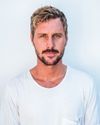The Forgotten Medicine That's Always Been Right Outside Your Door
When I was working 80-hour weeks in the hospital, I found myself completely disconnected—not just from others, but from the natural rhythms that once sustained me. My body was tired, my mind was foggy, and that deep sense of purpose I once felt had been replaced by emptiness.
Sound familiar?
What if I told you that the most powerful medicine for burnout, stress, and disconnection isn't found in a prescription bottle, but right outside your window? The research is clear: nature isn't just "nice to have"—it's a biological necessity our modern lives have dangerously deprioritized.
This understanding forms a core element of what I share in the SelfCare Book, where we explore how reconnecting with nature creates profound physiological and psychological healing.
The 3 Major Challenges We're Here to Solve Together
- Chronic Stress and Burnout: How nature immersion activates your parasympathetic nervous system, reducing cortisol levels more effectively than many medications.
- Digital Overwhelm and Disconnection: Why screen time has replaced green time, and how this fundamental shift undermines our psychological well-being.
- Purposeless Activity: How nature reconnection creates meaning and alleviates the existential emptiness many feel in modern life.
Would you be open to joining a community of others making this same journey of reconnection? The SelfCare Community is filled with people discovering how nature immersion is transforming their health.
The SelfCare Framework: Learn-Do-Embody-Teach
The journey to making nature your medicine follows our proven framework:
1. LEARN: Understanding Nature Connection Science
Nature isn't just "nice to have"—research shows it's essential for optimal cognitive function, immune response, and emotional regulation. We'll explore the groundbreaking science of biophilia and why your nervous system fundamentally requires natural environments.
2. DO: Daily Nature Medicine Practices
Simple, practical ways to incorporate nature connection into even the busiest lifestyle, creating profound healing without adding more to your plate.
3. EMBODY: Becoming Nature-Connected
Moving beyond occasional practices to develop an identity fundamentally reconnected to natural rhythms and cycles.
4. TEACH: Helping Others Reconnect
Creating ripples of healing by sharing nature medicine with family, friends, and community.
The Disconnection Crisis
"Nature is not a place to visit. It is home." — Gary Snyder
When I was working those long hospital shifts, I noticed something fascinating: the patients who could see trees through their windows recovered faster than those facing brick walls. Later, I discovered this wasn't just my observation—it's been scientifically documented.
The truth is, we're facing a nature-deficit disorder of epidemic proportions. The average American spends 93% of their life indoors, and 6 hours daily on digital devices. This isn't just unfortunate—it's biologically catastrophic.
Your body evolved over millions of years in direct relationship with natural environments. Your nervous system, immune function, and psychological well-being are designed to function optimally when regularly exposed to:
- Natural light cycles that regulate melatonin and cortisol
- Diverse microbial environments that train immune response
- Fractal patterns in nature that reduce cognitive fatigue
- Negative ions near moving water that improve mood and energy
- Phytoncides from trees that boost natural killer cell activity
The research is clear: disconnection from nature is a significant contributor to burnout, chronic fatigue, depression, and immune dysfunction. In my book Lifestyle Medicine for the People, I detail how this disconnection may be the most overlooked factor in the modern health crisis.
Driver, Not Passenger: Taking Control of Your Nature Connection
Most people live as passengers when it comes to their environment, assuming they must accept urban disconnection as inevitable. But you can choose to be the driver of your nature connection experience.
May I ask you—what small step could you take today to bring more nature medicine into your daily routine? Perhaps it's:
- A 15-minute barefoot walk in grass, sand, or soil (grounding)
- Eating lunch outside instead of at your desk
- Placing living plants in your workspace
- Sleeping with your window open to reconnect with natural air cycles
- Starting your day with 5 minutes of morning sunlight exposure
Remember: You don't need to live in a forest to benefit from nature medicine. Research shows even viewing nature photographs produces measurable physiological benefits. The key is intentionality—making conscious choices to prioritize this connection.
From Victim to Hero: Nature as Your Healing Ally
Many people feel victimized by their stress and fatigue, seeing their condition as fixed and unchangeable. The research contradicts this: studies show that just 20 minutes in nature significantly reduces cortisol levels and activates parasympathetic restoration.
A powerful study published in Environmental Health and Technology demonstrated that forest bathing (shinrin-yoku) increased natural killer cell activity by 50% for up to 7 days following a nature immersion experience. This isn't just "feeling better"—it's measurable immune enhancement.
Nature's Medicine Cabinet: Research-Backed Healing Effects
| Nature Experience | Measured Health Benefit | Research Finding |
|---|---|---|
| Forest Bathing (2-hour walk) | Immune Enhancement | 50% increase in natural killer cell activity lasting up to 7 days |
| Nature View from Hospital Room | Pain Reduction | 23% less pain medication needed during recovery |
| Green Space Exposure for Children | ADHD Symptom Reduction | Effects comparable to medication in symptom reduction |
| 20-Minute Nature Sitting | Stress Hormone Reduction | Significant cortisol decrease even in urban nature settings |
| Outdoor Exercise vs. Indoor | Mood Enhancement | 50% greater improvement in mood and self-esteem |
| Gardening Activities | Depression Relief | Clinically significant reduction in depression severity |
Would you be curious to know that hospital patients recovering from surgery needed 23% less pain medication when given a room with a nature view? Or that children with ADHD show symptom reduction comparable to medication effects after spending time in green spaces?
This isn't metaphorical—it's medical. Nature is literally medicine for your biology.
In the SelfCare Community, we've documented hundreds of cases where people have transformed chronic conditions through strategic nature connection practices. From insomnia to autoimmune flares, the healing stories are remarkable.
Self-Care as Service: The Ripple Effect of Nature Connection
Many busy caregivers, parents, and professionals believe they don't have time for nature connection. The opposite is true—you cannot afford to skip this medicine if you want to serve others effectively.
When you prioritize regular nature immersion, you're not being selfish. You're:
- Reducing your stress burden, making you more present and patient
- Enhancing your cognitive function, improving decision-making
- Boosting your immune resilience, reducing sick days
- Increasing your energy reserves for those who need you
- Modeling healthy relationship with the natural world
This is precisely why our 4-step framework culminates in TEACH—because your personal nature medicine practice creates ripples far beyond your individual wellbeing.
Your Next Step: From Knowledge to Experience
The science is compelling, but knowledge alone doesn't create transformation. Experience does.
Would you be open to taking one small step today to begin your nature medicine practice? Perhaps a 20-minute "awe walk" where you intentionally notice the natural world around you with childlike curiosity?
If you'd like to go deeper into the research and practical applications of nature as medicine, I've dedicated an entire section to this in my book Lifestyle Medicine for the People.
And if you're seeking community support on this journey, join us in the SelfCare Community where we're exploring these practices together.
Remember: nature isn't just something nice to experience occasionally—it's essential medicine your body and mind require for optimal function. The most powerful healing often begins with the simplest reconnection.
Key Research References:
- Li, Q. (2010). Effect of forest bathing trips on human immune function. Environmental Health and Preventive Medicine, 15(1), 9-17.
- Ulrich, R. S. (1984). View through a window may influence recovery from surgery. Science, 224(4647), 420-421.
- Bratman, G. N., Hamilton, J. P., & Daily, G. C. (2012). The impacts of nature experience on human cognitive function and mental health. Annals of the New York Academy of Sciences, 1249(1), 118-136.
- Kuo, F. E., & Taylor, A. F. (2004). A potential natural treatment for attention-deficit/hyperactivity disorder: evidence from a national study. American Journal of Public Health, 94(9), 1580-1586.
- White, M. P., Alcock, I., Grellier, J., Wheeler, B. W., Hartig, T., Warber, S. L., ... & Fleming, L. E. (2019). Spending at least 120 minutes a week in nature is associated with good health and wellbeing. Scientific Reports, 9(1), 1-11.
REFERENCES
This is directly referenced from the Amazon best-selling SelfCare Book "Lifestyle Medicine For the People" by Rory Callaghan. If you would like to read more content like this, grab the free online chapters of the book or a hard copy.
We have done our best to reference everyone's expert opinions, peer-reviewed science, and original thoughts, all references available here and referenced in the text.
We also understand that most thoughts are not our own and there is a collective unconsciousness, unconsciousness, and universal mind stream of energy that is always at work. How our references are sorted and filtered is here.
This article is for informational purposes only and should not replace professional medical advice. Always consult with your healthcare provider before beginning any new health regimen.



